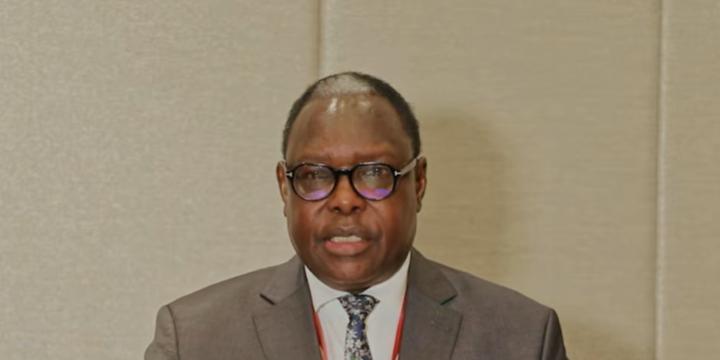Africa-Press – South-Sudan. South Sudan’s Cabinet Affairs Minister, Dr. Martin Elia Lomuro, said on Monday that peace remains a “lifeline” for the country, as he defended the government’s progress in implementing the 2018 peace deal. However, gaps in the implementation of the peace deal continue to raise doubts over whether the country’s fragile peace is delivering tangible change for ordinary citizens.
Speaking at a symposium jointly organized by the Chinese Embassy and the University of Juba, Lomuro said the Revitalized Agreement on the Resolution of the Conflict in the Republic of South Sudan (R-ARCSS) had provided a framework to “silence the guns” and restore political stability after years of internal strife.
“Implementation has been challenging, but it remains our most vital roadmap,” Lomuro said, referring to the High-Level Committee tasked with overseeing the peace deal’s rollout.
Despite the minister’s optimistic tone, several key provisions of the agreement — including the unification of armed forces, public financial reforms, and preparations for national elections — have seen repeated delays.
Lomuro did not directly address the pace of implementation, but stressed that “peace is not the task of one institution alone,” calling it a shared responsibility across political, religious, and community actors.
He praised Beijing for its role in infrastructure development, citing “concrete projects” ranging from road construction to scholarship programmes and energy cooperation.
“From roadmaps to hospitals, from scholarships to technology transfer, China has stood with us in practical ways,” he said.
Lomuro reiterated that South Sudanese citizens “must see tangible improvements” in their daily lives, including access to education, healthcare and economic opportunities. “Development is the true dividend of peace,” he said. “Without visible progress, peace will remain fragile.”
With national elections tentatively scheduled for December 2025, observers say the coming months will test the government’s ability to deliver on its peace commitments. Lomuro insisted the roadmap remains intact, citing recent efforts to improve airport infrastructure and energy access as “visible evidence of peace at work.”
In his closing remarks, he called on citizens and international partners to remain committed to peace and inclusive development, saying: “This is a decisive moment for us — the opportunity to turn peace from paper into practice.”
For her part, Chinese Embassy Chargé d’Affaires Huo Ying said peace and development in South Sudan are “deeply interconnected,” warning that without a stable environment, sustainable development would be “out of the question.”
The Chinese diplomat welcomed President Salva Kiir Mayardit’s recent reaffirmation of his commitment not to return South Sudan to war.
Referring to broader China-Africa relations, Huo highlighted Chinese President Xi Jinping’s announcement at last year’s Beijing summit of the Forum on China-Africa Cooperation (FOCAC), where China pledged to jointly advance 10 partnership actions aimed at promoting modernization across the African continent over the next three years.
She also reaffirmed China’s commitment to development cooperation with South Sudan, noting that the embassy is working closely with the government to advance several aid-supported projects. These include the second phase of the Juba Teaching Hospital, nationwide water well drilling, town-level technology initiatives, and the “Safe City” project aimed at improving urban infrastructure and security.
The envoy expressed hope that the forum — centered on the themes of peace, development, and building a community with a shared future for humanity — would offer meaningful insights and strengthen bilateral relations between China and South Sudan.
For More News And Analysis About South-Sudan Follow Africa-Press






